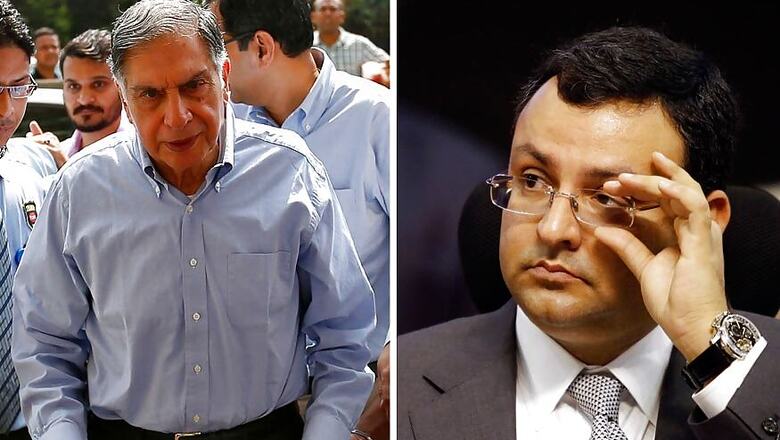
views
Immediately after the Tata Sons board removed Cyrus Mistry as chairman on Monday evening, newly-appointed interim chairman Ratan Tata send a letter to Prime Minister Narendra Modi appraising him of the developments. As per latest reports, Mistry too has sought an appointment with the PM, which the Prime Minister’s Office (PMO) hasn’t yet confirmed or denied. So just why is PM being aggressively kept in the loop in what essentially is a corporate war?
News18 spoke to legal analysts to find out what could be the possible reasons. The clues, they said, lie in the corporate structure of the Tata group firms.
Although Mistry has been removed as the Chairman of Tata Sons, the holding company for the Tata group, he still remains on its board. More significantly, he is the Chairman of various Tata group entities like Tata Power (Chairman), Tata Global Beverages (Non-Executive Chairman), Tata Steel Ltd (Chairman), Tata Motors (Non-Executive Chairman), Indian Hotels Company Ltd (Non-Executive Chairman), Tata Chemicals Ltd (Chairman), Tata Consultancy Services (Non Independent, Non-Executive Chairman), Jaguar Land Rover Automotive Plc (Chairman).
The Tata trusts hold a majority of the shareholding – close to 66% -- in the closely-held Tata Sons. However, their shareholding in their other listed firms is much less.
News18 parsed through publicly available documents of some Tata firms for a closer look at the shareholding pattern:
• Tata Steel: 32% controlled by promoter and promoter groups (Tata trusts and Tata companies), 9% by Unit Trust of India, 13% by Life Insurance Corporation.
• Tata Motors: Promoters control 33% while UTI has 4.36%.
• Tata Chemicals: Promoters control 30%, UTI has 14% and LIC has 3%
Now, if it comes down to a boardroom battle at each of these companies, the promoters, i.e. Tata, will need the cooperation of other shareholders. Getting the government to lend a sympathetic ear to its cause could be an essential part of the strategy if either group wants the support of the state-run shareholders like UTI or LIC.
“The Tatas will have to struggle to remove Mistry because they will have to go to the boards of each of these companies and force a vote,” Mohan Guruswamy, head of the Centre for Policy Alternatives, said.
Guruswamy said that apart from LIC and UTI, public sector banks like State Bank of India are also shareholders in Tata firms.
“The PSU firms will vote the way the government tells them because I don’t expect our public institutions to act independently,” Dr. Anil Gor, senior professor at NL Dalmia Institute of Management Studies and Research, Mumbai said.
Dr Gor added that if instructions are given by the government to PSU shareholders to vote in a certain way they will be of a verbal nature.
The other reason for meeting the Prime Minister, according to Dr. Gor, would be to preclude “untoward action” against the Tata firms at this point of time.
“There has been a loss of wealth and consequently shareholder value has been eroded,” Dr. Gor said. “Markets regulator SEBI or the Corporate Affairs Ministry may try and initiate proceedings, especially given the allegations in Mistry’s email,” he added.
Each side will want to make sure all its bases are covered in what is shaping up to be a high profile corporate battle.













Comments
0 comment